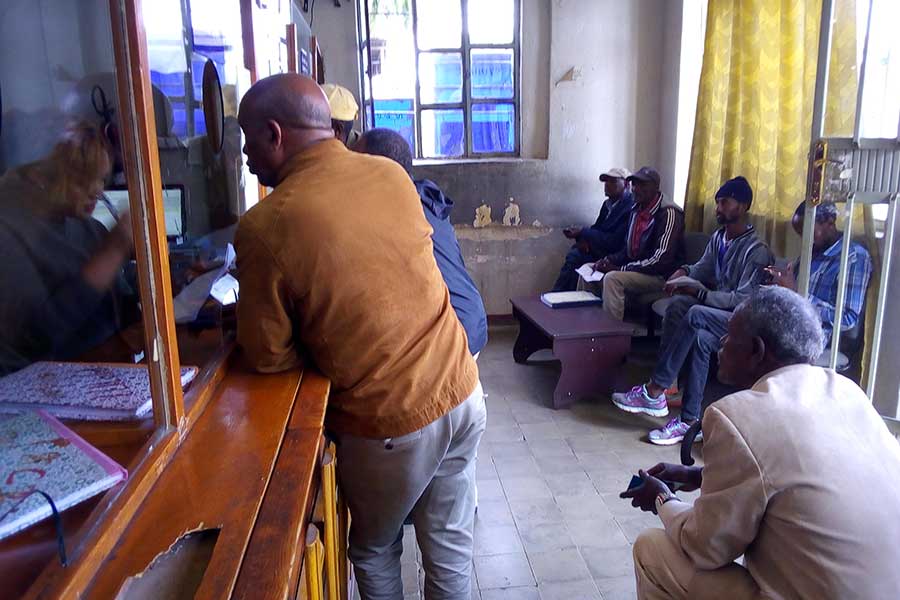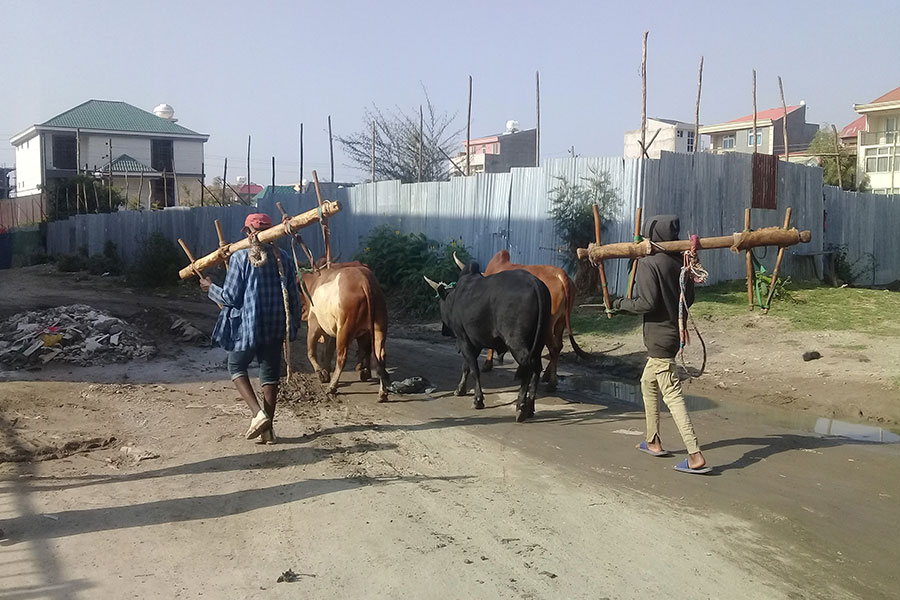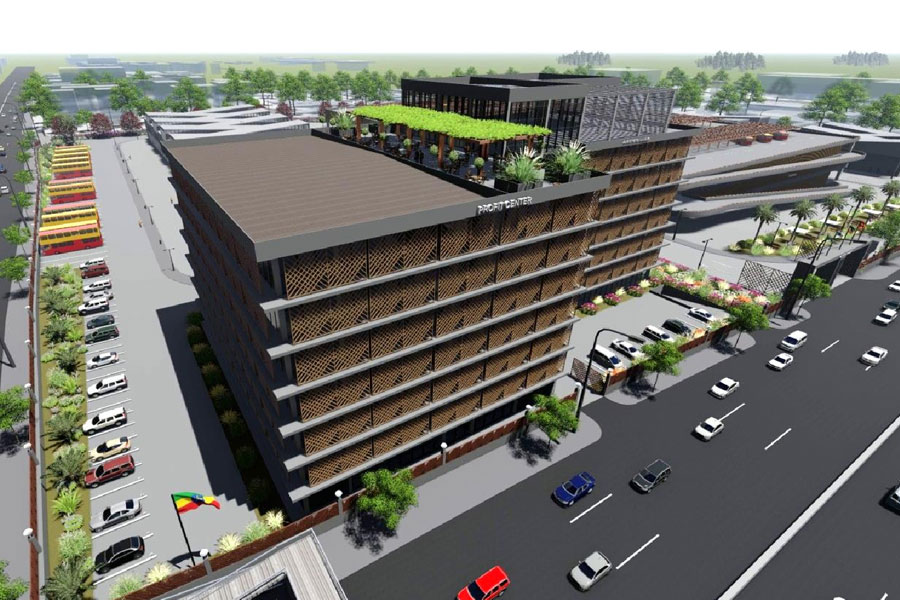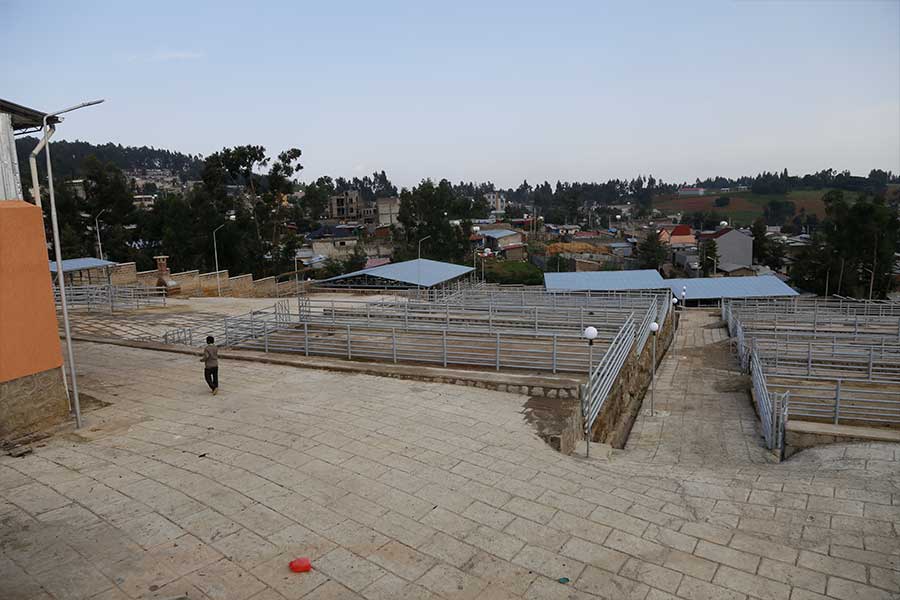
Agenda | Oct 12,2019
The gridlock of Addis Abeba’s traffic is a gruelling experience on any ordinary day, but early last month the situation changed into a virtual nightmare. A sea of stopped and idling vehicles morphed the streets into one colossal parking lot.
Fuming travellers abandoned their buses and taxis and started to walk, outpacing the cars. Trips that usually take an hour in the morning rush hour saw stranded commuters sitting in traffic for two and three hours, still far from their destinations.
“It is the celebration of the nationalities and peoples day at Mesqel Square,” said a man in a taxi stuck behind a semi-truck on the old Asmara Road.
He was immediately corrected by another passenger who pointed out that there was a ceremony to be held on Thursday too. Alas, the authorities had switched the date.
"The city has finalised preparations of the 13th Ethiopian Nations, Nationalities and Peoples' Day to be held on Saturday, December 8, 2018," read the announcement from the Ethiopian Press Agency. "The City’s Press Secretariat head, Feven Teshome, said, 'Addis Abeba is ready to receive the guests who come from all over the country,' continued the report.
Why there was a ceremony on Thursday, without prior announcement, was never explained. Or what preparations city had in mind to manage the event and the closure of one of the most important traffic arteries of the city, Mesqel Square, remains a mystery. But the end result was chaos, utter and unmitigated bedlam.
The gridlock of Addis Abeba’s traffic is a gruelling experience on any ordinary day, but early last month the situation changed into a virtual nightmare. A sea of stopped and idling vehicles morphed the streets into one colossal parking lot.
Regrettably, Addis Abeba city officials can only be expected to bluster and cover their tracks with pomposity. They are not expected to show care toward the pubic they serve or look after the interests of the citizenry.
Why should they, when the rest of the state machinery operates likewise?
Even issuing simple warnings, as a public service, of impending major road closures in the city is beyond them.
At the very least, the closing of roads leading to the International Airport; blocking the main hub of the north-south axis of the city; and denying vehicular access to the east-west connector of the business centres during rush hour, in the middle of the working week, requires the issuance of prior warnings to alert citizens.
But municipal authorities do not seem to be governed by a sense of duty to the public they serve. The result is that without any notice a completely cordoned off Mesqel Square greeted residents of the city on the morning of December 6.
It appears that a fanciful decision was made to hold a traditional Ethiopian coffee ceremony in the middle of Mesqel Square that day. The plan appears to have been made without consideration of the impact the closure of the main thoroughfare may have on the transportation system of the city.
Hassled and unprepared traffic officers attempted to direct vehicles away from the jammed streets. They scrambled drivers up toward Menilik II Palace; forced others to make U-turns back to Bole Road; and sent motorists into impassable logjams that had already knotted most of the roads in the capital.
The congestion spread quickly to Arat Kilo, Kazanchis, Sarris, Ledeta, Legar and Lam Beret, exasperating the daily woes of commuters.
“They are trying to enter the Guinness Book of Records by serving the largest number of coffee to people,” said a colleague jokingly to another who arrives several hours late to an office caught in the gridlock.
“What? How could they do that in the middle of the rush hour? Are they so ignorant? Couldn’t they have held it on the weekend? Why not hold it in Janhoy Meda or at the National Stadium?”
It is frustrating to observe the inability of municipal officials to tackle the myriad of problems that the city faces. But when bureaucrats undertake irresponsible and unnecessary decisions that add to the daily anguish of citizens, it becomes inexcusable.
It seems that the city authorities operate without the understanding of the mechanics and skills that are required to run the city properly. Their idea of expanding transportation capacity, for instance, is to encircle the city with tasteless concrete ballasts, lay giant concrete slabs, excavate unfinished dirt roads and turn the metropolitan landscape into what it is today a giant dysfunctional hulk. Little do they know that adding more road capacity will never be enough to eliminate traffic congestion.
In another example of the lack of understanding of planning and management, the municipal authorities are in the process of constructing thousands of bus shelters.
Sadly, city officials have not conducted a feasibility study prior to planning and initiating construction of these bus shelters at a cost of almost 39 million dollars.
"The project doesn't need a feasibility study, since we will install the new shelters at existing public bus stop locations," was the officials of the Addis Abeba City Transport Authority, when questioned about the matter.
The same officials also admit that there are major design and installation flaws with the shelters already built. But such small details do not trouble our public leaders, and the project proceeds unhindered.
PUBLISHED ON
Jan 26,2019 [ VOL
19 , NO
978]


Agenda | Oct 12,2019

Fortune News | Sep 03,2022

Fortune News | Oct 03,2020

Radar | Jul 20,2019

Fortune News | Nov 05,2022

Fortune News | Feb 02,2019

Fortune News | Nov 29,2020

Radar | Aug 30,2025

Radar | Jun 12,2023

Fortune News | Jul 13,2020

Dec 22 , 2024 . By TIZITA SHEWAFERAW
Charged with transforming colossal state-owned enterprises into modern and competitiv...

Aug 18 , 2024 . By AKSAH ITALO
Although predictable Yonas Zerihun's job in the ride-hailing service is not immune to...

Jul 28 , 2024 . By TIZITA SHEWAFERAW
Unhabitual, perhaps too many, Samuel Gebreyohannes, 38, used to occasionally enjoy a couple of beers at breakfast. However, he recently swit...

Jul 13 , 2024 . By AKSAH ITALO
Investors who rely on tractors, trucks, and field vehicles for commuting, transporting commodities, and f...

Oct 18 , 2025
The political establishment, notably the ruling party and its top brass, has become p...

Oct 11 , 2025
Ladislas Farago, a roving Associated Press (AP) correspondent, arrived in Ethiopia in...

Oct 4 , 2025
Eyob Tekalegn (PhD) had been in the Governor's chair for only weeks when, on Septembe...

Sep 27 , 2025
Four years into an experiment with “shock therapy” in education, the national moo...